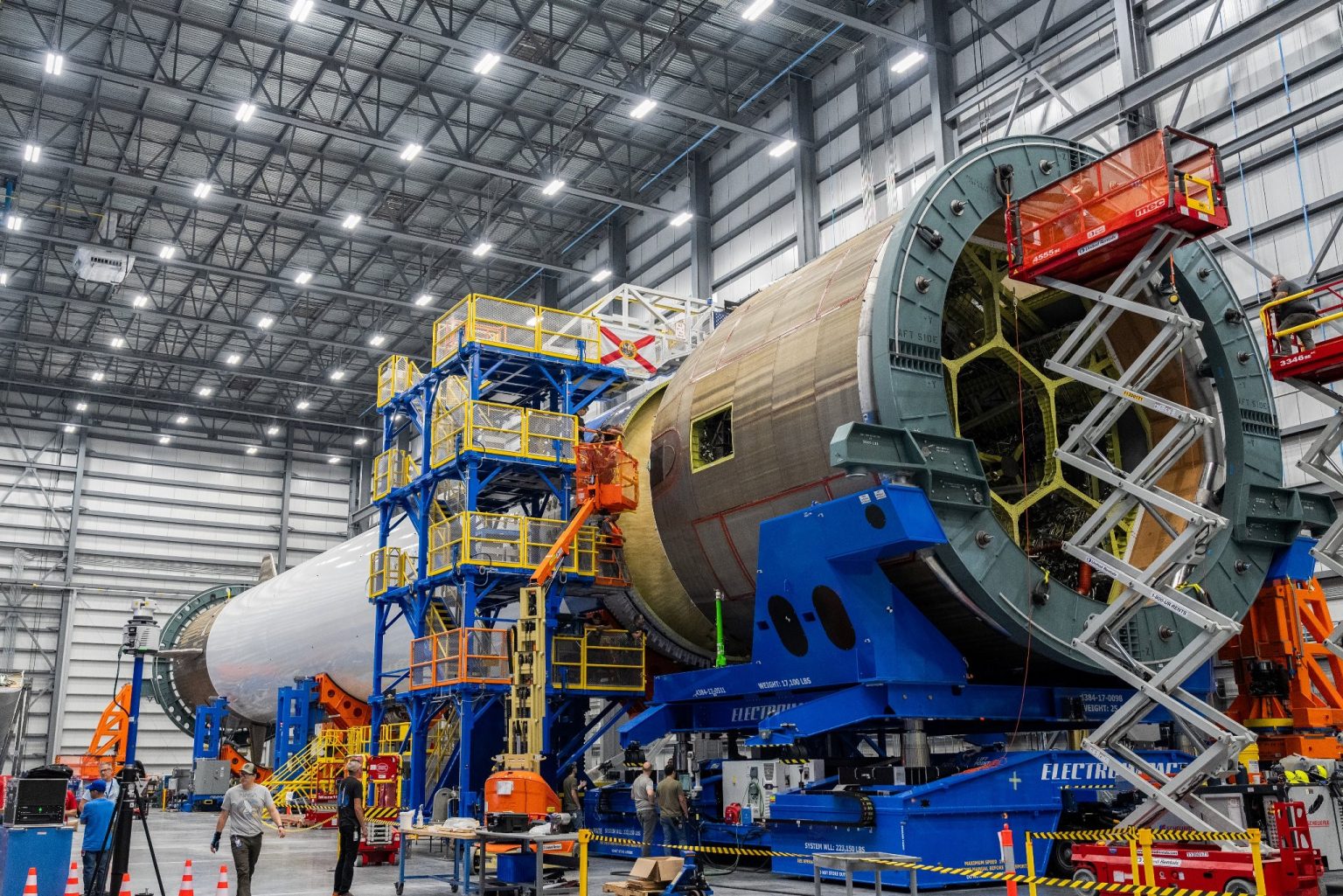NASA has recently announced a delay in the launch of its ESCAPADE probes to Mars, resulting in changes to the scheduled debut of Blue Origin’s heavy-lift New Glenn rocket. The rocket was initially set to send the twin ESCAPADE spacecraft to Mars next month, but following a review of launch preparations, NASA has rescheduled the launch for spring at the earliest. The mission’s planning is complex due to the narrow launch window dictated by the alignment of Earth and Mars, where even the smallest schedule adjustment can result in a months-long delay for liftoff.
This decision was made after consultations with Blue Origin, the Federal Aviation Administration, and range safety managers at the U.S. Space Force. NASA chose to postpone fueling up the ESCAPADE probes in order to avoid significant cost, schedule, and technical challenges that may arise should the fuel need to be removed in the event of a launch delay caused by various factors. ESCAPADE is a mission aimed at studying interactions between the solar wind and Mars’s magnetosphere and providing valuable information on the planet’s atmosphere for future missions exploring farther into the solar system.
The delay in the ESCAPADE probes launch gives Blue Origin some breathing room as it prepares for the inaugural flight of the New Glenn rocket. Blue Origin has expressed support for NASA’s decision and looks forward to launching the ESCAPADE probes at a later date. Consequently, the company plans to advance New Glenn’s second flight, initially scheduled for December, to November, during which the rocket will carry Blue Ring technology and undergo its first National Security Space Launch certification flight. The company has announced plans for its Blue Ring orbital logistics vehicle to support the Pentagon’s Defense Innovation Unit mission known as DarkSky-1.
The postponed launch of the ESCAPADE probes and the rescheduling of New Glenn’s debut mission reflect the complexities and challenges involved in planning space missions, particularly those aimed at exploring distant planets like Mars. NASA’s decision to delay the launch was based on avoiding potential complications that could arise from a launch delay, underscoring the meticulous planning required for successful space missions. The postponement also highlights the collaborative efforts between government agencies, private space companies like Blue Origin, and other stakeholders involved in ensuring the success and safety of space exploration missions.
The ESCAPADE mission’s focus on studying Mars’s atmosphere highlights the significance of understanding the space environment to protect astronauts and spacecraft during future missions exploring deeper into the solar system. NASA’s commitment to launching the ESCAPADE probes safely demonstrates the agency’s dedication to advancing scientific knowledge and expanding humanity’s understanding of the universe. With the support of partners like Blue Origin, NASA continues to push the boundaries of space exploration and pave the way for future missions to unlock the mysteries of the cosmos.
Overall, the announcement of the delay in the ESCAPADE probes launch and the subsequent adjustments to the New Glenn rocket’s schedule mark important developments in the ongoing quest to explore Mars and beyond. These changes underscore the dynamic nature of space missions and the need for careful planning and coordination among all parties involved. As preparations continue for the upcoming missions, the collaboration between NASA, Blue Origin, and other stakeholders in the space community remains crucial in advancing our understanding of the universe and achieving new milestones in space exploration.











